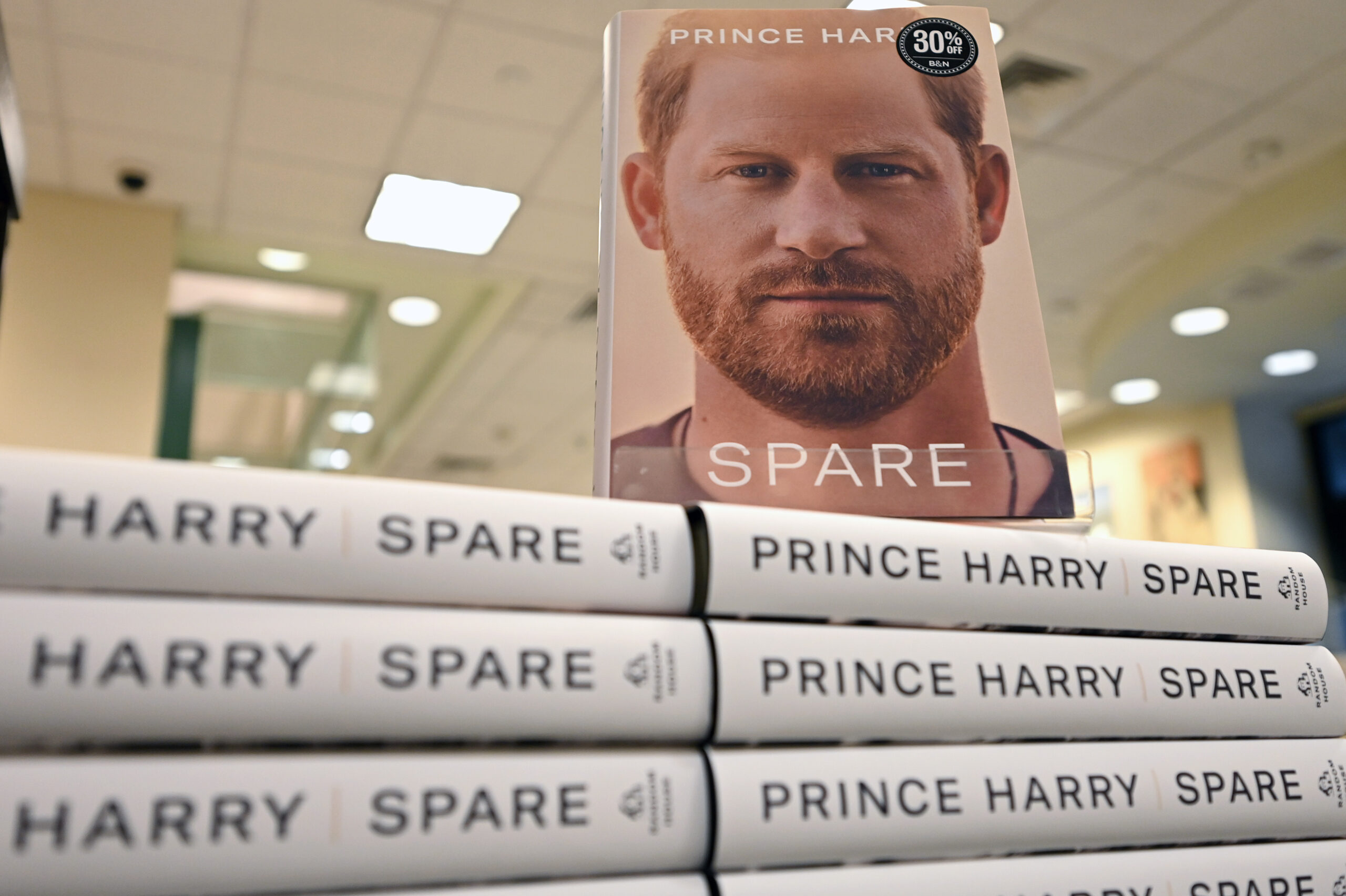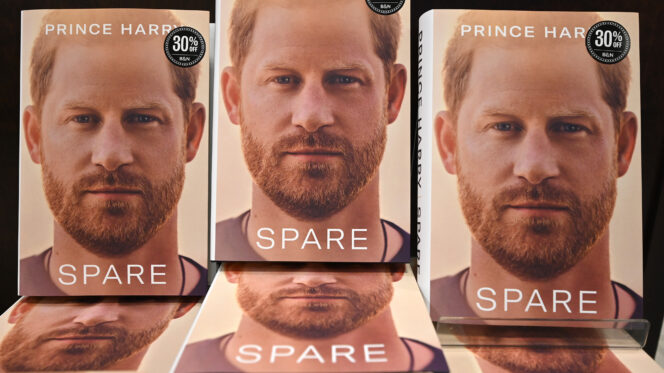Britain’s Media Gatekeepers Are No Match for America’s
Just ask Prince Harry.
by Aaron Bastani
25 January 2023

If the British media had gotten their way, Prince Harry’s memoir Spare, released a fortnight ago, would have floundered. “Harry’s hatchet job memoir falls flat!” read the Daily Express, commenting on the lack of queues outside bookshops on publication day. “Prince Harry’s bombshell book Spare is heading for the bargain bin – before it has even been released” declared the Daily Mirror a few weeks earlier. Elsewhere, the likes of Julia Hartley-Brewer, Piers Morgan and the rest of Britain’s bombastic pundit class were suitably apoplectic.
Most bizarre of all was that the BBC ran a series of articles you’d instinctively associate with Take a Break magazine. “Harry’s memoir Spare displayed beside How to Kill Your Family novel”, ran one piece. A book review (apparently they do those now) declared Spare “the weirdest book ever written by a royal”. Another piece was titled “Why Americans seem more pro Harry than Brits”. These were all published on the same day, in an effort more akin to a coordinated PR campaign than public service journalism. And yet, despite everything, Spare became the fastest selling non-fiction title in history, recording 1.4 million sales on its first day across the UK, US and Canada.
When it comes to the media’s treatment of Harry and Meghan, the only analogue I can think of – whatever you think of the couple themselves – is Jeremy Corbyn. In both cases, rather than relaying the facts, virtually all scrutiny aims instead at how you are supposed to feel. Oh no, the baddies are being bad again – time to get angry!
And yet Harry, unlike Corbyn, is enjoying cultural impact as well as massive commercial success. His standing with the public may be in decline, yes – but so too is brand Windsor. Rather than rallying behind Buckingham Palace, what we have instead is a sense of intrigue amongst the public regarding the lives of people who – just perhaps – shouldn’t sit atop our constitutional order. William and Kate’s approval ratings have taken a significant hit over the last month, while early indications suggest Spare’s success bodes poorly for the monarchy as an institution. In polling conducted since its release, 52% of 18-24 year olds wanted to replace Charles with an elected head of state, while just 34% wish to keep the monarchy. As recently as last September, a desire to retain the monarchy led by 14 points among that same age cohort. Back in 2015, 69% of respondents aged 18-24 felt Britain should be a monarchy, while only 15% wanted an elected head of state. Across the entire public, 25% of people would now like to see the monarchy abolished – an increase of 3% in a single month (and a rise of 10% in just five years).
But how is it possible that Harry has managed to generate such interest, with the sales of his book smashing all previous records, while the British press relentlessly attack his character? And how has it made such a dent into the monarchy – an institution which millions support?
The answer is simple – and for Britain’s media gatekeepers, deeply worrying. A shared language and increasingly global platforms for news and information means the UK is becoming, culturally speaking, an appendage of the United States. While English has proven an extraordinary tool of soft power, even after the collapse of the British empire, it increasingly feels like a site of cultural exposure. And although the Windsors have the BBC and Fleet Street, Harry has Netflix, Spotify, Penguin, and a smorgasbord of US chat show hosts. When it comes to winning the hearts of Britain’s under-50s, the country’s most powerful clan is holding a pea-shooter in a gunfight. And the momentum is only going in one direction.
In the background to all this are rapid changes in media consumption, with Silicon Valley slowly executing a strategy of cultural imperialism over the rest of the Anglophone world (we share not only a language, but the platforms too). Instagram, YouTube and TikTok – the first port of call for anyone under 40 – combined with the rise of global streaming services like Netflix, Prime Video and Apple TV means the end of a distinctly British media environment. Predictably, this has the old gatekeepers, particularly the press, up in arms. They have been the apex predators in our country’s cultural conversation since forever, but that is now coming to an end – however incrementally.
It was a similar story when the Queen died last year. Whatever one thinks of the tone of the response from the US press, the reaction this elicited from the British media was extraordinary. In the Telegraph, Douglas Murray declared that the New York Times (NYT) was on a “jihad” against the UK, while Andrew Neil accused the paper of “anti-British propaganda”. But is it really so surprising that the paper of record in the most liberal city – of a nation founded as a revolutionary republic – might be critical of the monarchy?
Perhaps the real reason for Murray and Neil’s bluster was the recognition of their own impotence compared to a newspaper with 10 million paying subscribers. 20 years ago, what the NYT thought about the British monarchy wasn’t available to news consumers in the UK. It was, therefore, politically irrelevant. Today, by contrast, it is the tenth most read news website in this country – ahead of the Daily Express and Independent, and just behind the Daily Mirror. What’s more, it is now the world’s most-read English-speaking newspaper site (a title which, until recently, belonged to Mail Online), and its prodigious growth-rate (up 68% year on year) saw it receive half the worldwide traffic of the BBC in December. For a paywalled website, this is a remarkable accomplishment.
Harry has offered a blueprint for how others can circumvent the British media: go West. This option is only available to the rich and famous, of course – but it nonetheless underscores something important. The gatekeepers at the BBC and Fleet Street ain’t what they were. For decades, the left has bemoaned US cultural imperialism, while the right has snorted at the idiocy of the idea. But as Britain’s cultural sphere merges into a transnational Anglophone one, with socially liberal Californians and New Yorkers at the wheel, expect the snorting to stop.
Aaron Bastani is a Novara Media contributing editor and co-founder.


